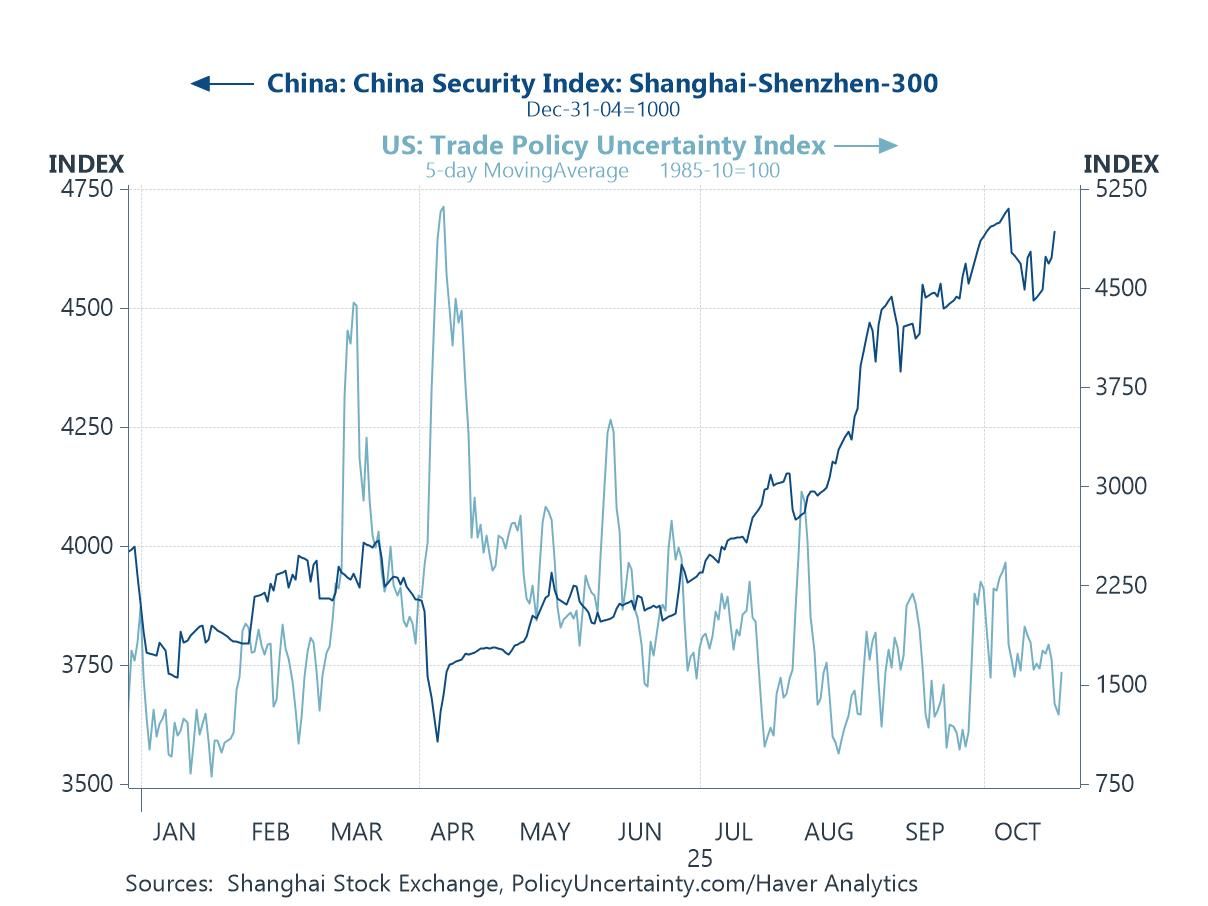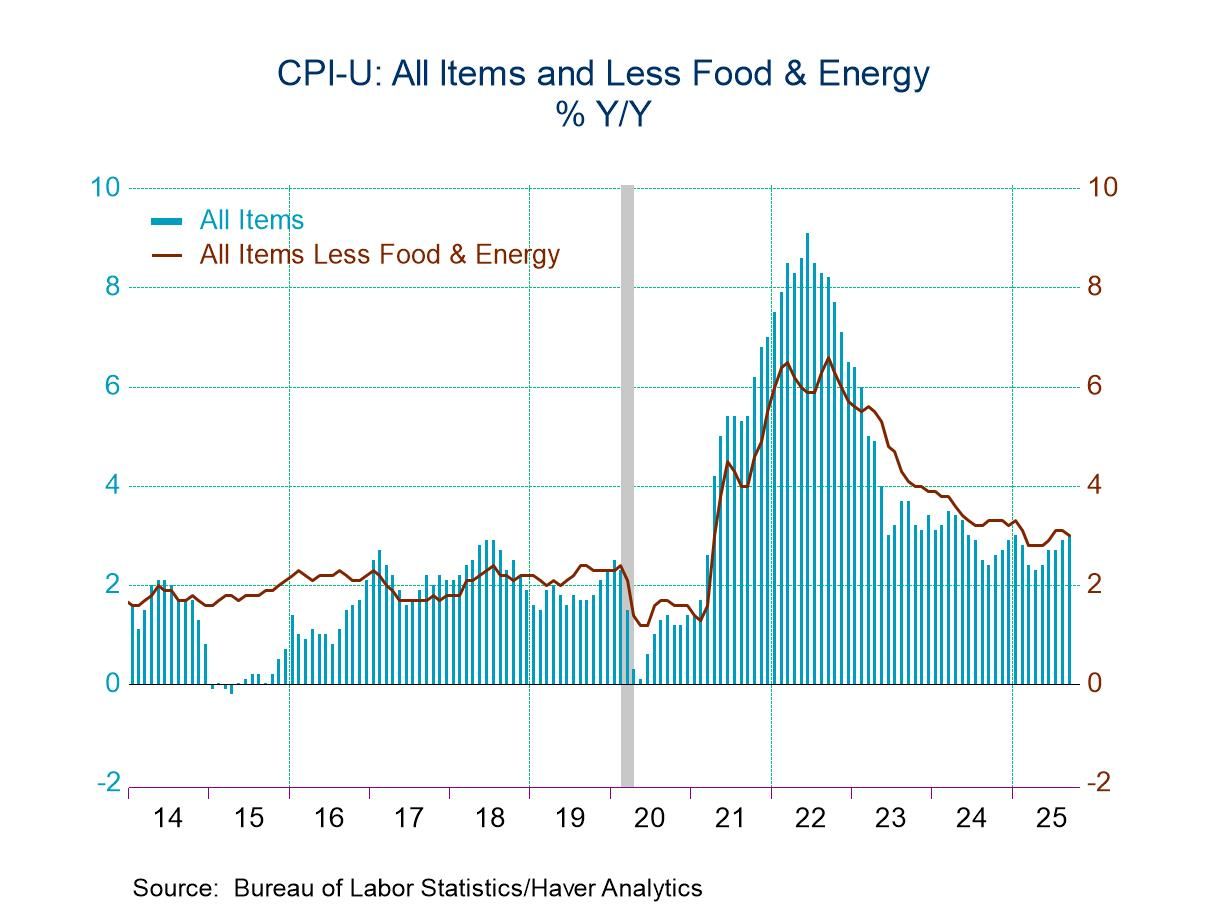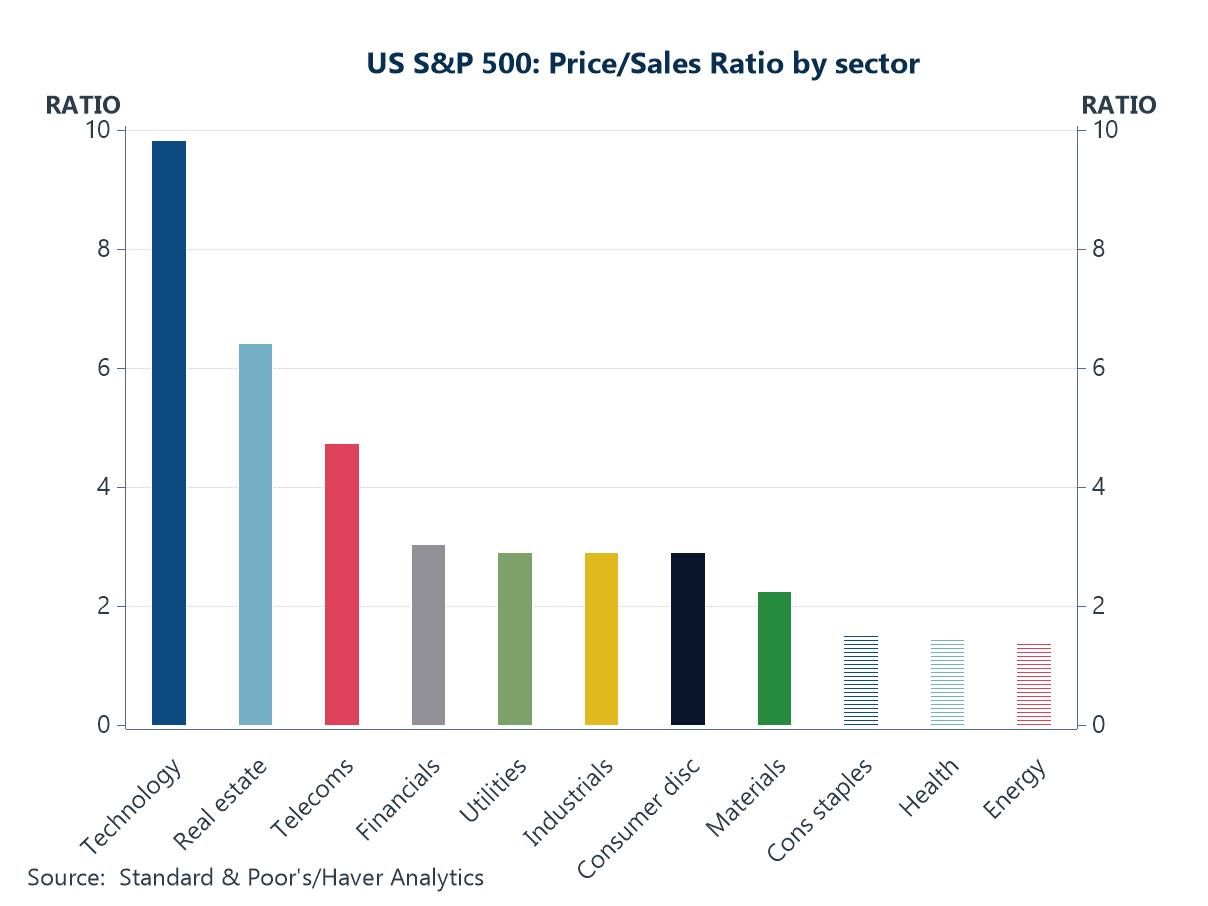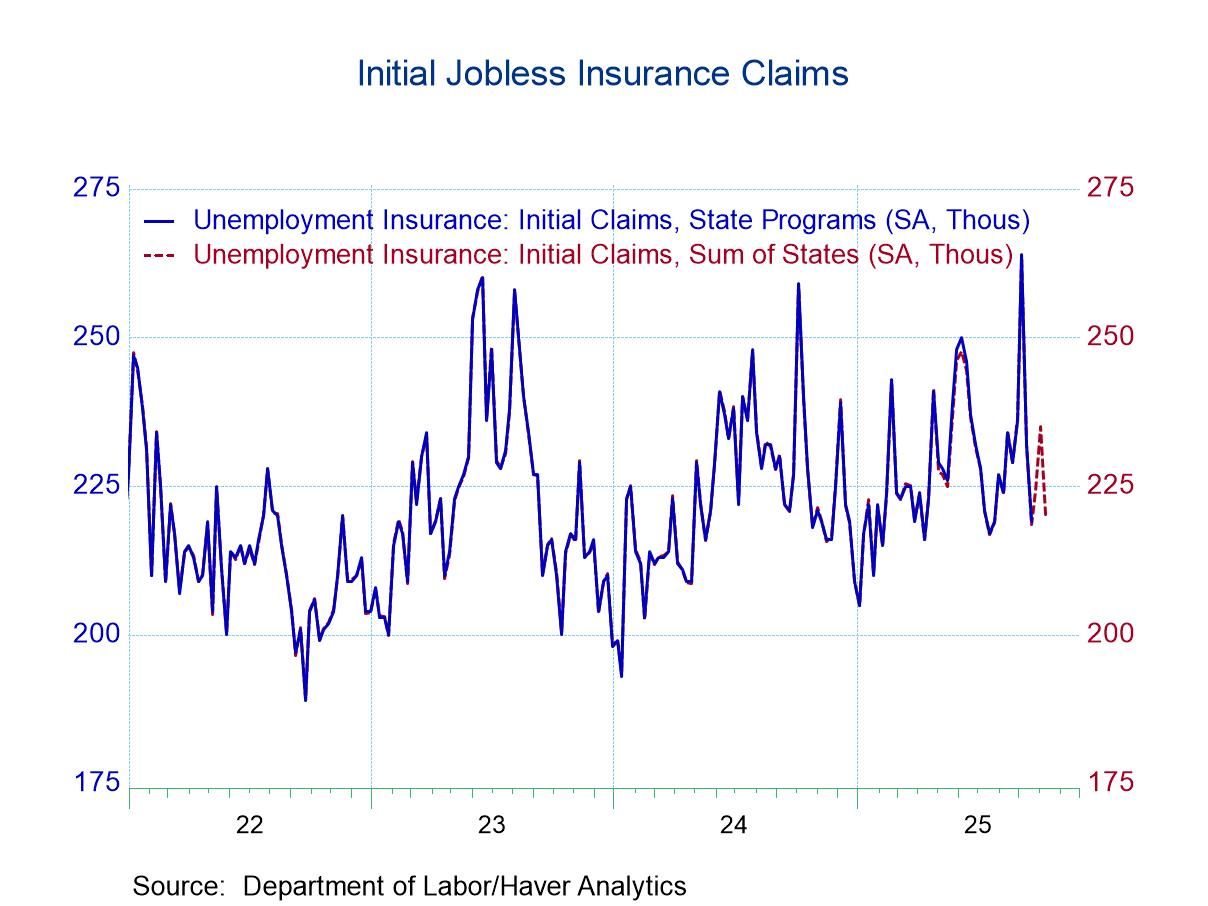 Global| Oct 14 2005
Global| Oct 14 2005Brazil's Retail Sales Ease in August, But Show Good Gain from Year Ago
Summary
Retail trade in Brazil decreased slightly in August, according to data reported this morning by Brazil's Institute of Geography and Statistics (IBGE). The total value of sales, seasonally adjusted, eased 0.3% from July, and the volume [...]
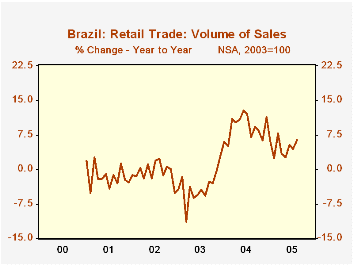
Retail trade in Brazil decreased slightly in August, according to data reported this morning by Brazil's Institute of Geography and Statistics (IBGE). The total value of sales, seasonally adjusted, eased 0.3% from July, and the volume of sales was down by 0.4%. However, press reports highlighted a stronger move in year-on-year growth. Sales volume, not seasonally adjusted, was up 6.5% from August 2004, the best such performance since March.
The strongest sectors included furniture and appliances and computers and peripherals. Supermarket and food store sales are expanding less than they did last year. Fuel outlets have also seen persistent declines in volume this year -- on a year-over-year basis -- but the August figure, at -6.0%, was the smallest of these decreases. Notably, a price deflator for the fuel category calculated from the value and volume indexes was slowing through August, suggesting that the reduced volume of fuel purchases was not a direct response to accelerating prices. This may have changed in September, however.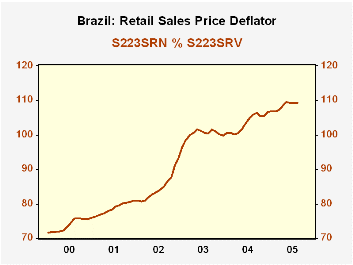
The general price situation in Brazilian retail sales continues to look favorable. A broad deflator based on the ratio of total value to total volume of sales stood at only 109.3 in August, an annualized increase of 4.5% from the middle of 2003, the base period for these data. Moreover, this index has been virtually flat for four months, and if calculated from raw data before seasonal adjustment, it has been declining mildly in the latest months. This sluggish tendency is a far cry from the double- digit pace that prevailed as recently as 2003. Again, as with fuel prices themselves, this result may have deteriorated in September as world energy prices surged. Even so, the moderation of inflation can only help the underlying health of Brazil's consumers and overall economy.
| Brazil: Index, 2003=100 |
Aug 2005* | July 2005* | Aug 2004* | 2004 | 2003 | 2002 |
|---|---|---|---|---|---|---|
| Retail Sales Value | 125.52 | 125.92 | 115.84 | 113.13 | 100.14 | 88.30 |
| % Change | -0.3 | 0.3 | 10.0 | 13.0 | 13.4 | 7.3 |
| Retail Sales Volume | 114.84 | 115.27 | 109.47 | 109.25 | 100.00 | 103.81 |
| % Change | -0.4 | 0.2 | 6.5 | 9.2 | -3.7 | -0.7 |
| Implicit Price Index** | 109.30 | 109.24 | 105.82 | 103.36 | 100.11 | 84.77 |
| % Change | 0.1 | 0.0 | 3.3 | 3.2 | 18.1 | 7.9 |
Carol Stone, CBE
AuthorMore in Author Profile »Carol Stone, CBE came to Haver Analytics in 2003 following more than 35 years as a financial market economist at major Wall Street financial institutions, most especially Merrill Lynch and Nomura Securities. She had broad experience in analysis and forecasting of flow-of-funds accounts, the federal budget and Federal Reserve operations. At Nomura Securities, among other duties, she developed various indicator forecasting tools and edited a daily global publication produced in London and New York for readers in Tokyo. At Haver Analytics, Carol was a member of the Research Department, aiding database managers with research and documentation efforts, as well as posting commentary on select economic reports. In addition, she conducted Ways-of-the-World, a blog on economic issues for an Episcopal-Church-affiliated website, The Geranium Farm. During her career, Carol served as an officer of the Money Marketeers and the Downtown Economists Club. She had a PhD from NYU's Stern School of Business. She lived in Brooklyn, New York, and had a weekend home on Long Island.


